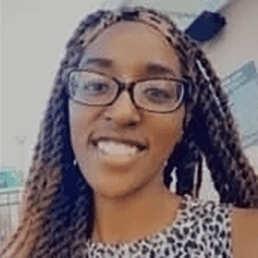
You may have heard people use ‘that’ and ‘which’ interchangeably and wondered what the difference is between these words. If you’re still unsure, we’ll be covering that in this article, plus teaching you how to use both words in a sentence correctly. Plus, you’ll learn how to pronounce both words correctly.
Need a quick answer? Here it is:
A lot of people use the terms interchangeably, but the words are not synonymous, as you just saw. While they both refer to something previously mentioned when introducing another clause, there’s a difference. So, avoid swapping one word out for the other.
It can be tricky trying to determine which word to use when it comes to ‘which’ and ‘that.’
But there’s a way to remember which to use.
Use ‘which’ when you’re discussing non-essential information.
Use ‘that’ when you’re discussing essential information.
Also, ‘that’ is used to describe an object, item, person, or condition, while ‘which’ is used to add information to objects, items, people, situations, etc.
‘Which’ usually comes right before a comma and at the end of the clause.
The main difference between these words is that the former describes essential information, and the latter describes non-essential information.
The usage depends on whether the following clause is restrictive or non-restrictive.
The general rule, however, is that you use ‘that’ only to introduce a restrictive relative clause, which identifies the person or thing being talked about.
For example, you might say:
‘The red pants that I have are red.’
Or you might say:
‘That class that I dropped turned out to be more fun than I thought, according to my former classmates.’
The Merriam-Webster dictionary defines ‘that’ as:
It also means:
The same dictionary defines ‘which’ as:
It also means:
Are you curious about how to pronounce these words? Here’s a short guide.
To pronounce ‘that’ correctly, here’s the phonetic spelling:
thAt
To pronounce ‘which’ correctly, here’s the phonetic spelling:
wIch
Now that we’ve got the definition and pronunciation out of the way, let’s see some examples of how to use both words in a sentence correctly.
To recap, we learned that:
Remember, many people use the terms interchangeably, but the words have different meanings, as you just saw. While they both refer to something previously mentioned when introducing another clause, there’s a difference. So, don't use them interchangeably in any case in your writing.
If you ever get stuck on the meaning or usage, feel free to come back here and review what you learned. We’ve got a ton of other content on confusing words and phrases you might see as you’re learning the language. Go check it out anytime.
We encourage you to share this article on Twitter and Facebook. Just click those two links - you'll see why.
It's important to share the news to spread the truth. Most people won't.
